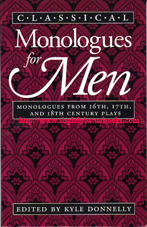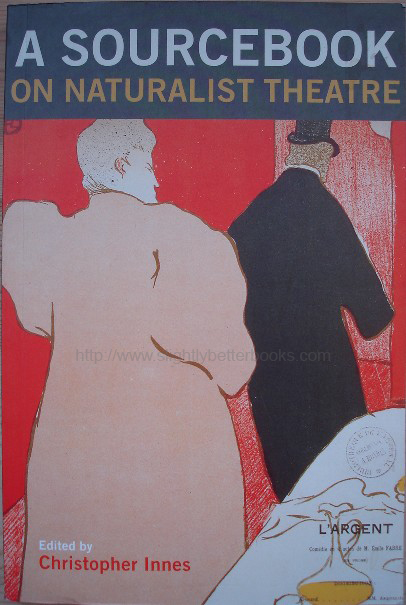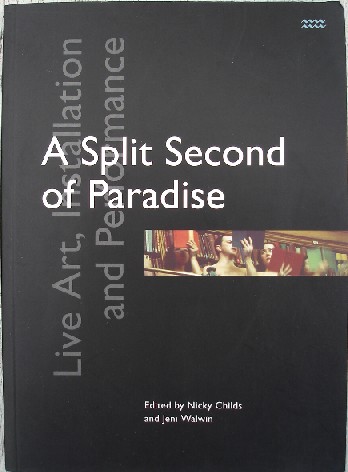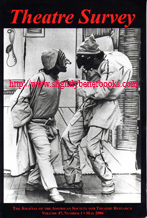
1992, Heinemann Educational Books, Inc, pbk
In stock, click to buy for £4.99, not including post and packing
Alternative online retailers to try:
Click here for our prebuilt search for this book on Abebooks
Click here for our prebuilt search for any edition of this title on Alibris
Click here for our prebuilt search for any edition of this title on Ebay
Or try Biblio






|
- Classical Monologues for Men: Monologues From 16th, 17th and 18th Century Plays [top]
First published in 1992 in the United States by Heineman Educational Books, Inc, in paperback, 130pp, ISBN 0435086197
The editor recommends that readers also try the classical texts:
The Rover by Aphra Behn
Hyde Park by Jame Shirley
[two texts brought to the editor's attention by working with The Royal Shakespeare Company (RSC) at Stratford-on-Avon
- Notes to readers - once you have selected the monologue that you want to use from the book, you must read the play itself to set the character, and your individual interpretation of that character, in context. There is a bibliography at the back of this book to enable the reader to find the entire published play
About this book/synopsis: One of the hardest tasks, especially for the budding actor is finding audition pieces that directors have not heard time and time again. And when actors pursue the search for a "classical" monologue, they often limit themselves to Shakespeare. But there is a great body of work from the fifteenth through the eighteenth centuries that lies virtually untapped by the majority of actors.
This book therefore contains monologues from English plays from the 16th, 17th and 18th centuries, and American plays of the 18th century. They range from highly dramatic pieces that are classical in subject matter as well as in nature, to the sparkling, brittle wit of the late 17th and 18th centuries. And only one piece by Shakespeare is included! Directors are primarily interested in seeing and hearing how an actor handles verse and elevated language and this requirement does not limit the actor to Shakespeare.
This work will free the actor from spending hours, weeks and perhaps months searching for fresh classical material. The pieces have also been edited to provide the actor with a good working monologue with a beginning, middle and end, of sufficient length and scope to satisfy most auditions.
Any actor attending an audition that requires a classical piece can benefit from this collection whether it is a professional audition, a general season audition, a graduate school admissions audition, a scholarship audition or a showcase. They can also be useful for the actor who is looking for material for class work or a coaching session
Contents:
Introduction
SERIOUS MONOLOGUES:
Part: Don Carlos. from The Adventures of Five Hours by Sir Samuel Tuke
Part: Tissaphernes. from Alcibiades by Thomas Otway, Act I
Part: Tissaphernes. from Alcibiades by Thomas Otway, Act II, scene i
Part:
Duke. from All Mistaken, or, The Mad Couple by James Howard, Act I, scene i
Part: Pandulpho.
from Antonio's Revenge by John Marston. Act I, scene ii
Part: Fernando. from The Brothers by James Shirley, Act III, scene i
Part:
Lessingham. from A Cure for a Cuckold by John Webster, Act I, scene i
Part:
Truman Junior. from Cutter of Coleman Street by Abraham Cowley, Act I, scene i
Part: Kno'well. from
Every Man in His Humor by Ben Jonson, Act II, scene iii
Part: Young Wilmot. from Fatal Curiosity by George Lillo, Act I, scene iii
Part: Hercules. from The Fawn by John Marston, Act I, scene ii
Part: Lord Piso. from The Fleire by Edward Sharpham, Act V, scene iii
Part: Don Juan de Padilla. from The Ladies of Castile by Mercy Otis Warren, Act I, scene iv
Part: Cornelio. from Love Tricks by James Shirley, Act II, Scene ii
Part:
Infortunio. from Love Tricks by James Shirley, Act IV, Scene ii
Part: Lovel. from The New Inn by Ben Jonson, Act I, scene vi
Part: Falorus. from The Obstinate Lady by Sir Aston Cokain, Act V, scene iii
Part: Meanwell. from The Ordinary by William Cartwright, Act I, scene i
Part: Oroonoko. from Oroonoko by Thomas Southerne, Act II, scene ii
Part: Rolla. from Pizarro by Richard Brinsley Sheridan, Act II, scene ii
Part: Loveless. from The Relapse by Sir John Vanbrugh, Act III, scene ii
Part: Gaudentius. from The Sack of Rome by Mercy Otis Warren, Act II, scene v
Part: Maximus. from The Sack of Rome by Mercy Otis Warren, Act III, scene i
Part: Maximus. from The Sack of Rome by Mercy Otis Warren, Act IV, scene i
Part: Arcite. from Two Noble Kinsmen by William Shakespeare & John Fletcher, Act II, scene ii Part: Palamon. from Two Noble Kinsmen by William Shakespeare & John Fletcher, Act II, scene i Part: Priuli. from Venice Preserv'd by Thomas Otway, Act I, scene i
Part: Jaffeir. from Venice Preserv'd by Thomas Otway, Act I, scene i
Part: Flamineo. from The White Devil by John Webster Act I, scene ii
Part: Monticelso. from The White Devil by John Webster, Act II, scene ii
Part: Francisco. from The White Devil by John Webster, Act IV, scene i
COMIC MONOLOGUES:
Part:
Sosia. from Amphitryon by John Dryden, Act II, scene i
Part: Ramble. from The Country Wit by John Crowne, Act III, scene i
Part:
Ramble. from The Country Wit by John Crowne, Act IV, scene iii
Part: Sir Harry. from The Constant Couple by George Farquhar, Act V, scene i
Part:
Jessamy. from The Contrast by Royall Tyler, Act II, scene ii
Part: Maskwell. from The Double-Dealer by William Congreve, Act III, scene i
Part: Mellefont. from The Double-Dealer by William Congreve, Act I, scene i
Part: Sir Harry Flutter. from The Discovery by Frances Sheridan, Act I, scene ii
Part: Brainworm. from Every Man in His Humor by Ben Jonson, Act IV, scene iii
Part: Nymphadoro. from The Fawn by John Marston, Act III, scene i
Part: Hercules. from The Fawn by John Marston, Act II, scene i
Part: Grimundo. from The Grateful Servant by James Shirley, Act III, scene iv
Part: Lord George. from The Lady's Last Stake by Colley Cibber, Act II, scene ii
Part: Jeremy. from Love for Love by William Congreve, Act I, scene i
Part: Rufaldo. from Love Tricks by James Shirley, Act III, scene i
Part: Smirk. from The Minor by Samuel Foote, Act II
Part: Lopez. from The Mistake by Sir John Vanbrugh, Act V
Part: Heartwell. from The Old Bachelor by William Congreve, Act III, scene ii
Part: Fondlewife. from The Old Bachelor by William Congreve, Act IV, scene i
Part: Leanchops. from The Projectors by John Wilson, Act II, scene i
Part: Suckdry. from The Projectors by John Wilson, Act II, scene i
Part: Farewel. from Sir Courtly Nice by John Crowne, Act II, scene i
Part: Sir David. from The Soldier's Fortune by Thomas Otway, Act II
Part: Sir Formal. from The Virtuoso by Thomas Shadwell, Act III, scene iv
Part: Mirabel. from The Way of the World by William Congreve, Act IV, scene i
SERIO-COMIC MONOLOGUES:
Part:
Philidor. from All Mistaken, or, The Mad Couple by James Howard, Act II
Part: Jolly. from The Cheats by John Wilson, Act I, scene ii
Part: Mopus. from The Cheats by John Wilson, Act IV, scene ii
Part: Don Julio Pimiento. from The Choleric Fathers (A Comic Opera) by Thomas Holcroft
Part: Philippo. from The City Nightcap by Robert Davenport, Act II
Part: Lovewell. from The Clandestine Marriage by David Garrick & George Colman the Elder, Act I, scene i
Part: Pinchwife. from The Country Wife by William Wycherly, Act IV
Part: Maskwell. from The Double Dealer by William Congreve, Act II, scene i
Part: Freevill. from The Dutch Courtesan by John Marston, Act I, scene i
Part: Lord Wronglove. from The Lady's Last Stake by Colley Cibber, Act I, scene i
Part: Falorus. from The Obstinate Lady by Sir Aston Cokain, Act IV, scene ii
Part: Euphues. from The Old Couple by Thomas May, Act I
Part: Lord Townley. from The Provoked Husband by Sir John Vanbrugh and Colley Gibber, Act I, scene i
Part: Sciarrha. from The Traitor by James Shirley, Act II, scene i
Part: Fowler. from The Witty Fair One by James Shirley, Act I, scene iii
Part: Brains. from The Witty Fair One by James Shirley, Act II, scene ii
Part: Loveboy. from The Wild Gallant by John Dryden, Act III, scene ii
Bibliography |
Other books on dramatic monologues:
Auditioning:
Acting Pieces:
|

2000, Routledge
In stock, click to buy for £16.75, not including p&p
Alternative online retailers to try:
Click here for our prebuilt search for this book on Abebooks
Click here for our prebuilt search for any edition of this title on Alibris
Click here for our prebuilt search for any edition of this title on Ebay
Or try Biblio



|
- A Sourcebook on Naturalist Theatre [top]
Edited and introduced by Christopher Innes
First published in 2000 in Great Britain by Routledge in hardback
Reprinted in 2000 in Great Britain by Routledge in paperback, 261pp, ISBN 0415152291
Contents/synopsis:
This textbook provides the reader with key primary sources that document a movement in modern theatre and the author Christopher Innes has picked three writers to demonstrate the movement; and also a further six plays:
Henrik Ibsen's 'A Doll's House' and 'Hedda Gabler'
Anton Chekov's The Seagull and 'The Cherry Orchard'
George Bernard Shaw's 'Mrs Warren's Profession' and 'Heartbreak House'
Chrostopher Innes has provided an illuminating and engaging overview of naturalist theatre with key themes addressing:
-how women are represented
-contemporary issues
-links between theory, play writing and stage practice
-how to use ideas as the basis for action and character
The book also desrcribes many aspects of naturalism such as the dramatists's aims, the first staging of a play and the public reception
About the Author: Christopher Innes at the time of publication was a distinguished Research Professor at York University Toronto and had produced Modern British Drama 1890-1990 and Avant Garde Theatre: 1892-1992
Chapters:
Illustrations, Acknowledgements
1. Introduction
Note on documentation
Theoretical approaches
Definitions
The historical context
Acting and character
Conventions and perspectives
Key themes
The naturalistic movement
Questioning the canon
2. The Context of Naturalist Theatre: A Chronology
3. Contemporary Theories of Naturalism
a. Georg Brandes and Henrik Ibsen
b. Émile Zola and André Antoine
c. Anton Chekhov and Konstantin Stanislavsky
d. Bernard Shaw
4. Henrik Ibsen: 1828-1906
a. Context
b. Ibsen's naturalistic drama
c. A Doll's House
The play; chronology of major early performances; performance and reception
d. Hedda Gabler
The play; chronology of major early performances; performance and reception
5. Anton Chekhov: 1860-1904
a. Context
b. Chekhov's naturalistic drama
c. The Seagull
The play; chronology of major early performances; performance and reception
d. The Cherry Orchard
The play; chronology of major early performances; performance and reception
6. Bernard Shaw: 1856-1950
a. Context
b. Shaw's naturalistic drama
c. Mrs Warren's Profession
The play; chronology of major early performances; performance and reception
d. Heartbreak House
The play; chronology of major early performances; performance and reception
Selected Critical Bibliography; Henrik Ibsen; Anton Chekhov; Bernard Shaw; Index
Illustrations:
4.1. A Doll's House, Royal Theatre, Copenhagen: 1879. The 'tarantella' scene in Act II with Betty Hennings
4.2. Studio portrait of Elizabeth Robins as Hedda Gabler, London, 1891
The Seagull, Moscow Art Theatre: 1898 (directed by Stanislavsky)
5.1. Nina's performance in Act 1
5.2 The dining room of Act III
5.3 The reversed view of Act IV: study with dining room beyond
5.4 Stanislavsky's floor plan for Act III
5.5 Stanislavksy's floor plan for Act IV
The Cherry Orchard, Moscow Art Theatre: 1904 (directed by Stanislavsky)
5.6 The return in Act 1
5.7 Landscape and graveyard in Act II
5.8 Lopakhin's announcement in Act III
5.9 The departure in Act IV
Mrs Warren's Profession, The Stage Society, London: 1902 (directed by Bernard Shaw, performed without scenery)
6.1 In rehearsal: Bernard Shaw with Vivie (Madge McIntosh) and Mrs. Warren (Fanny Brough)
6.2 The capitalist and the Lovers, Act III: Granville Barker and Madge McIntosh with Charles Goodheart
6.3 The Confrontation in Act IV: Chrystal Herne and Mary Shaw
Heartbreak House, Garrick Theatre, New York: 1920, and London 1921 (directed by Bernard Shaw)
6.4 Ellie Dunn and Captain Shotover, Act I
6.5 Waiting for the bombs in Act III
This book is invaluable for all students of the theatre |
2000, Routledge, hardback
2000, Routledge, pbk
Other Theatre Books of Potential Interest:
|

1998, River Oram's Press, pbk
Sorry, sold out, but click image to access prebuilt search on Amazon for this title
Alternative online retailers to try:
Click here for our prebuilt search for this book on Abebooks
Click here for our prebuilt search for any edition of this title on Alibris
Click here for our prebuilt search for any edition of this title on Ebay
Or try Biblio |
- A Split Second of Paradise [top]
Edited by Nicky Childs and Jeni Walwin
First published in 1998 in Great Britain by Rivers Oram Press in hardback in 1854890980 ; and distributed in the USA by New York University Press ; and distributed in the USA by New York University Press
Published in 1998 in Great Britain by Rivers Oram Press in paperback, 1854890999, 158pp. Cover features picture detail from 'Time Piece' by Gary Stevens
Contents/Synopsis: Live art, installation and performance inspire growing audiences attracting supporters across a range of contemporary art practices and disciplines. A Split Second of Paradise offers new texts by nine well-known writers on the work of leading artists working in live art. The artists draw from new cultural trends, fashions and music as well as from aspects of modern customs and live art. Their new developments connect not only to traditional theatre and fine art, but also to the sharp end of cultural practice: multimedia work, interactive video and other strands of technology. A Split Second of Paradise assembles writers who have worked closely with the performance artists to create a wider context for understanding live art, and for unravelling aspects of its growing popularity and practice. The studies of the artists' work offer new insights and strategies for considering live art's relevance today.
This is a ground-breaking book for students of theatre studies, performance, fine and creative arts and cultural studies, and their teachers. It also provides material for live art followers on the club and music circuits.
Chapters:
Preface
Notes on Artsadmin
The Contributors
The Artists
Introduction 1.
The Sincerity of Events by Lynn MacRitchie
Introduction 2. Valuable Spaces: New Performance in the 1990s by Tim Etchells
1. The Eros of Rose: The Work of Rose English by Deborah Levy
2. Never/As Simple as ABC: The Work of Gary Stevens by Yve Lomax
3. Bobby Baker: The Rebel at the Heart of the Joker by Marina Warner
4. Force Field: The Work of Heather Ackroyd and Daniel Harvey by Sacha Craddock
5. Borderland Practice: The Work of Graeme Miller by Andrea Phillips
6. An Act in Several Parts: The Work of Station House Opera by Sarah Kent
7. The Art of the Magician: The Work of Keith Khan by Naseem Khan
Artsadmin Artists/Companies
Index
About the Authors: At the time of publication, Jeni Walwin and Nicky Childs worked for Artsadmin in London, a management base for artists' projects in a variety disciplines with the company acting as a broker between artists and producers, programmers and commissioners in projects ranging from live art to contemporary dance. |
1998, Rivers Oram, hbk
1998, Rivers Oram, pbk
|

Cambridge University Press, 2006, pbk
Biannual Publication
In stock, click to buy for £7.25, not including p&p



|
- Theatre Survey, Volume 47: 1, May 2006 [top]
Theatre Survey is the bi-annual Journal of the American Society for Theatre Research
Edited by Jody Enders; The Book Review editor is Edward Ziter; and associate editor is Martin Puchner. Sources Editor: Annette Fern; Editorial Assistant: Andrew Gibb.
Theatre Survey is published biannually in May and November by Cambridge University Press for the American Society for Theatre Research. It is a theatre history journal - its theatrical and historical orientations are broadly conceived and its focus is essentially (but not completely) performance-centred and historiographic studies from all points across the historical, cultural and methodological spectra. Literature studies on drama, but not related to actual performances fall outside the scope of this journal.
Contents:
From the Editor
Letters from Philip Auslander, Sarah Bay-Cheng, Cheryl Black, Laura Edmondson, Glenda E. Gill, Eng-Beng Lim, Tamsen Wolff, and Michael A. Zampelli
Articles:
-Noah D. Guynn's 'A Justice to Come: The Role of Ethics in La Farce de Maistre Pierre Pathelin'
-Melissa Dana Gibson's '1979 and All That: Periodization in Postwar British Theatre History'
-Sara Freeman's 'Writing the History of an Alternative-Theatre Company: Mythology and the Last Years of Joint Stock'
-
R. Andrew White's 'Stanislavsky and Ramacharaka: The Influence of Yoga and Turn-of-the-Century Occultism on the System'
RE: Sources
Annette Fern's 'Deconstructing the Goodman: Documents of a Twentieth-Century Stage
What are you Reading?
Angela Pao
BOOK REVIEWS:
-Harry J. Elam's 'The Past as Present in the Drama of August Wilson reviewed by Sandra G. Shannon
-Philip C. Kolin's 'Understanding Adrienne Kennedy' reviewed by James Fisher
-
Enoch Brater, ed., 'Arthur Miller's America: Theatre & Culture in a Time of Change' reviewed by Jeffrey D. Mason
-
Sam Stagg's 'When Blanche Met Brando: The Scandalous Story of "A Streetcar Named Desire" reviewed by Garrett Eisler
-
Katrin Sieg's 'Ethnic Drag: Performing Race, Nation, Sexuality in West Germany' reviewed by Shannon Steen
-
Loren Kruger's 'Post-Imperial Brecht: Politics and Performance, East and South' reviewed by Catherine M. Cole
-
John Conteh-Morgan and Tejumola Olaniyan, eds., 'African Drama and Performance', reviewed by Awam Amkpa
-
Evelyn Bige Vitz, Nancy Freeman Regalado, and Marilyn Lawrenc, eds., 'Performing Medieval Narrative' reviewed by Elina Gertsman
-
Donnalee Dox, ‘The Idea of the Theater in Latin Christian Thought: Augustine to the Fourteenth Century reviewed by Edmund P. Cueva
-
Pierre Pasquier, ed., ‘Le mémoire de Mahelot: Mémoire pour la decoration des pieces qui se représentent par les Comédiens du Roi reviewed by David G. Muller
-
Kim C. Sturgess ‘Shakespeare and the American Nation’ reviewed by Katherine West Scheil
-
John McCormick, with Clodagh McCormick and John Phillips ‘The Victorian Marionette Theatre’ reviewed by Joseph Donohue
-
Miriam Lopez Rodriguez and Maria Dolores Narbona Carrion, eds., ‘Women’s Contribution to Nineteenth-Century American Theatre’ reviewed by Karl M. Kippola
-
Charlotte M. Canning ‘The Most American Thing in America: Circuit Chautauqua as Performance’ reviewed by Don B. Wilmeth
-
Jan Cohen-Cruz ‘Local Acts: Community-Based Performance in the United States reviewed by Bruce McConachie
-
Penny Farfan ‘Women, Modernism & Performance’ reviewed by Margaret F. Savilonis
-
Joan Fitzpatrick Dean ‘Riot and Great Anger: Stage Censorship in Twentieth-Centuy Ireland reviewed by Karin Maresh
-
Bella Merlin: Konstantin Stanislavsky
Franc Chamberlain: Michael Chekhov
Jonathan Pitches: Vsevolod Meyerhold
Simon Murray: Jacques Lecoq: ALL OF THESE WERE REVIEWED BY JERRI DABOO
-
Ian Carruthers and Takahashi Yasanuri ‘The Theatre of Suzuki Tadashi’ reviewed by Julie A. Iezzi
-
Herbert Blau ‘Sails of the Herring Fleet: Essays on Beckett’ reviewed by Spencer Golub; List of Books Received |
Books about theatre performance
|







